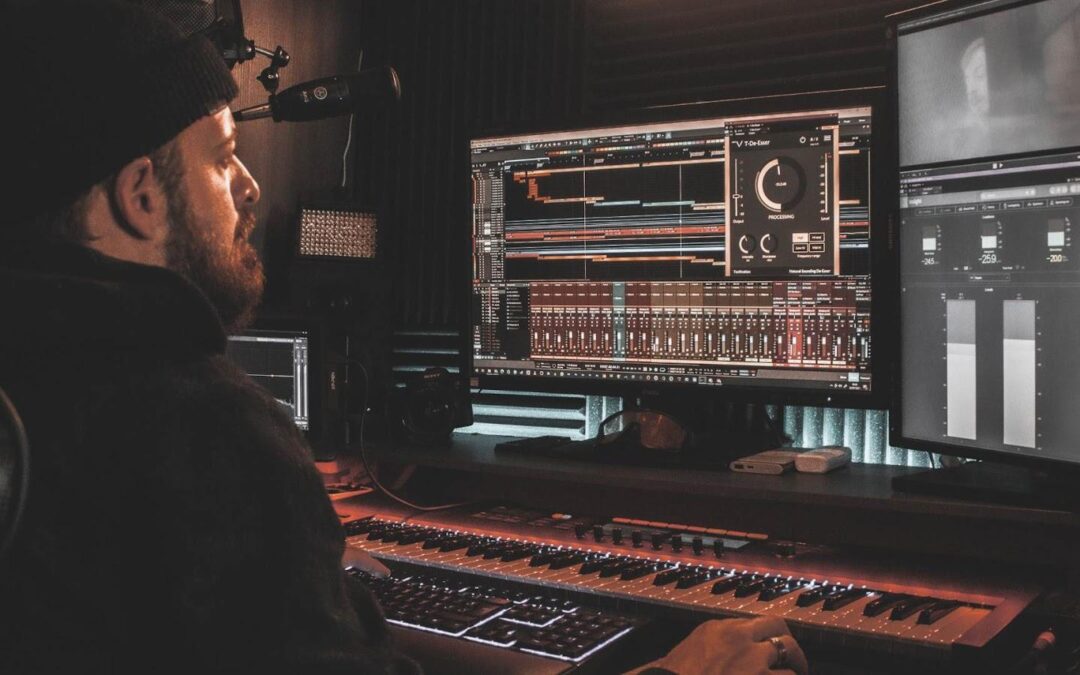As technology and the music industry continue to evolve, so does the field of audio engineering. From cutting-edge software to innovative hardware, audio engineering is a constantly changing field. Students enrolled in the Audio Engineering Program at Musicians Institute are well-equipped to meet the demands of the industry and stay up to date with the latest trends and innovations. In this blog post, we will explore some of the trends and innovations in the audio engineering industry and how they are shaping the future of the field.
Immersive Audio
Immersive audio is a relatively new technology that creates a three-dimensional sound field that surrounds the listener. It is becoming increasingly popular in music production and live sound, with new technologies such as Dolby Atmos and Auro-3D being developed to create a more immersive audio experience.
Immersive audio technology allows sound engineers to create a 3D sound experience that puts the listener in the middle of the music. With immersive audio, it’s possible to create a more realistic and engaging experience for listeners. This technology is being used in a wide range of applications, from movies to video games to virtual reality experiences.
Spatial Audio
Spatial audio is another emerging technology that allows sound to be positioned in a three-dimensional space. This can be used to create a more realistic and immersive audio experience. It is becoming increasingly popular in virtual and augmented reality applications.

Blog Post
"*" indicates required fields
By submitting this form, I authorize Musicians Institute (MI) to make or allow the placement of calls, emails, and texts to me at the phone number that I have provided, including through the use of automated technology, or a prerecorded or artificial voice. I understand that I am not required to provide my phone number as a condition of purchasing any property, goods, or services. I agree to the terms of MI’s Privacy Policy. MI will not sell or rent your information to third parties, and you may unsubscribe at any time.
Virtual Reality
Virtual reality (VR) is a technology that simulates a user’s physical presence in a three-dimensional environment that can be experienced using a headset or other devices. In the context of audio engineering, virtual reality can create immersive, 360-degree sound environments that allow listeners to experience a sound space as if they were actually there. This can be especially useful for artists, producers, and engineers who are looking to create immersive, interactive, and engaging sound experiences for their audiences.
Virtual reality is transforming the audio engineering industry. With virtual reality technology, engineers can create immersive, interactive experiences that put the listener right in the middle of the music. Virtual reality technology is being used in a wide range of applications, from concerts and festivals to video games and interactive media.
When this type of audio is combined with a VR headset, the listener can experience a 360-degree sound environment that responds to their movements and position within the space. This type of technology is particularly effective for creating interactive and immersive sound experiences for video games, virtual reality experiences, and other interactive media.
AI and Machine Learning
Artificial intelligence and machine learning are transforming the music industry, and audio engineering is no exception. These technologies are being used to automate many of the tedious and time-consuming tasks of audio engineering, freeing up engineers to focus on more creative aspects of the process.
For example, AI-powered software can analyze and categorize music tracks, making it easier for engineers to find the right samples and sounds for a project. Machine learning algorithms can also be used to automate mixing and mastering tasks, helping engineers to achieve the perfect sound more quickly and efficiently.
Cloud-Based Audio Production
Cloud-based audio production is a trend that is gaining popularity, as it allows audio engineers to work remotely and collaborate on projects in real-time. This can be particularly useful for remote recording sessions, where musicians and engineers are located in different parts of the world. The COVID-19 pandemic really accelerated the trend toward remote recording as many musicians were unable to travel to traditional recording studios. Audio engineers have had to adapt and find new ways to work by introducing cloud-based audio production.
Final Thoughts
As technology continues to evolve, the possibilities for music production and sound design are endless. The future of audio engineering looks promising, with a plethora of innovative trends that are transforming the industry. From the emergence of virtual reality and immersive audio to the rise of AI-powered tools and cloud-based production, there are now more opportunities than ever for audio engineers to create compelling and unique sound experiences.
At Musicians Institute’s Audio Engineering Program, we are committed to providing our students with the latest tools and techniques to stay ahead of the curve in this dynamic field. With our state-of-the-art facilities and world-class faculty, our students are well-prepared to take on the challenges of the modern audio industry and make a meaningful impact on the future of sound. As the industry continues to evolve, we look forward to seeing what new innovations and trends will emerge, and we are excited to be at the forefront of this exciting journey.

